Chasing Imperfection.
Hello after a long and joyful break from blogging. Joyful (and long) because our time was spent loving and learning this little guy: As many of you know, becoming a parent is a steep learning curve.
As many of you know, becoming a parent is a steep learning curve. http://www.amazon.com/Safe-Baby-Handling-Tips-David/dp/0762424915It took us awhile to get pregnant. At some point, we had to accept that our story was not going to be"perfect." And while that was tough, it helped prepare us for the first weeks of Bo's life. Because - spoiler alert - having a newborn is not a "perfect" experience. It is beautiful, full of love and laughter, but not perfect. Let's be clear - the baby is perfect in our eyes. But we are not. Far from it.Like, I have, um, a friend who forgot to put the diaper on right and was greeted with a whiz to the face. Or, er, another friend who may have thrown out some milk accidentally. Or the screwing up of nap schedules in the beginning (turns out, babies need to sleep! Like a LOT!) and not knowing the right way to soothe and, and, and...the list of imperfections goes on and on.But, you just have to dive in. You have to accept that you might mess up daily, mostly from simply not knowing, or from exhaustion, or just that you're not great at this huge, difficult thing yet. You have to dive in because hanging back means the kid's needs are not met. Hanging back means you don't improve - you stay a scared novice longer. Hanging back means you torture yourself with self doubt or guilt. Nope. You got to dive in and try a whole bunch of stuff to see what works as you get better each day.As a new parent, you have to start chasing imperfection.
http://www.amazon.com/Safe-Baby-Handling-Tips-David/dp/0762424915It took us awhile to get pregnant. At some point, we had to accept that our story was not going to be"perfect." And while that was tough, it helped prepare us for the first weeks of Bo's life. Because - spoiler alert - having a newborn is not a "perfect" experience. It is beautiful, full of love and laughter, but not perfect. Let's be clear - the baby is perfect in our eyes. But we are not. Far from it.Like, I have, um, a friend who forgot to put the diaper on right and was greeted with a whiz to the face. Or, er, another friend who may have thrown out some milk accidentally. Or the screwing up of nap schedules in the beginning (turns out, babies need to sleep! Like a LOT!) and not knowing the right way to soothe and, and, and...the list of imperfections goes on and on.But, you just have to dive in. You have to accept that you might mess up daily, mostly from simply not knowing, or from exhaustion, or just that you're not great at this huge, difficult thing yet. You have to dive in because hanging back means the kid's needs are not met. Hanging back means you don't improve - you stay a scared novice longer. Hanging back means you torture yourself with self doubt or guilt. Nope. You got to dive in and try a whole bunch of stuff to see what works as you get better each day.As a new parent, you have to start chasing imperfection. The start of a new school year is a little like having a newborn. If you have experience teaching, you know many engagement moves, you have pedagogy to play with, but it takes time to get the mixture right with your class composition. If you are new to teaching, well, you know what they say about learning curves: get ready to hike up that beautiful, terrifying, imperfect hill!As we begin the school year, we can try to get everything right immediately, feeling skittish each day, or we can embrace our imperfection. We can chase down the areas of our teaching that feel weakest, that give us the most nerves. We can dive into the work ahead of us with gusto and look for (and look forward to) the places where we might mess up. After all, this is how we will learn, how we will find the new moves and inspiring moments that keep us going.In the essay "Failure is a Good Thing," Jon Carroll writes that every week, he knows that no matter what, one of his columns will be the worst one of the week. He says that while he used to try and avoid this each day, now he looks forward to it.
The start of a new school year is a little like having a newborn. If you have experience teaching, you know many engagement moves, you have pedagogy to play with, but it takes time to get the mixture right with your class composition. If you are new to teaching, well, you know what they say about learning curves: get ready to hike up that beautiful, terrifying, imperfect hill!As we begin the school year, we can try to get everything right immediately, feeling skittish each day, or we can embrace our imperfection. We can chase down the areas of our teaching that feel weakest, that give us the most nerves. We can dive into the work ahead of us with gusto and look for (and look forward to) the places where we might mess up. After all, this is how we will learn, how we will find the new moves and inspiring moments that keep us going.In the essay "Failure is a Good Thing," Jon Carroll writes that every week, he knows that no matter what, one of his columns will be the worst one of the week. He says that while he used to try and avoid this each day, now he looks forward to it.
I have learned to cherish that column. A successful column usually means that I am treading on familiar ground, going with the tricks that work, preaching to the choir or dressing up popular sentiments in fancy words. Often in my inferior columns, I am trying to pull off something I've never done before, something I'm not even sure can be done.
We can think of our lessons and units in a similar way - that only by trying new things, by venturing out into uncharted territory, will we discover ourselves and our students as teachers and learners.Of course, it is difficult these days to embrace imperfection. We are in the age of teacher evaluations and multi-faceted performance assessments at every turn. While it may be true that these new initiatives will give us insight into what makes good teaching, it is equally true that our current climate does not lend itself to a spirit of "hey you guys, let's mess up a lot!" But without this spirit, we will be in a choke hold. We will hang back. And if we hang back, it often means the kids' needs are not met. Hanging back means you don't get better, you stay scared longer. Hanging back means you plague yourself with self doubt or guilt.So what do you say? Here are some ways to get started looking for the imperfect places in our teaching to dive into this year:1. Pick a unit/topic/issue/text you have always wanted to teach but aren't sure how. Do you love graphic novels? Teach your kids how to write them! Frustrated by the lack of poetry in the CCSS? Teach the heck out of poetry, knowing that the skills found there will certainly be used elsewhere. Thinking that now is an essential time to teach your kids about the forces at play in places like Ferguson, MO? Dive in and try to do it right, knowing that even if you are clumsy now, you will teach it better next time.2. Try out a new "thing." Maybe it's a new device, like using your iPad to track student conferences (we suggest using the Evernote App for your notes), or maybe you'd like to start a class blog. Or you were at a workshop where someone shared how their kids made movies to go along with the stories they wrote and you thought, "my kids would love that!" Take this year to play with a new whatchamacallit.3. Take on an impossible challenge.Right now, some gauntlets have been thrown down in education. The standards ask us to help our kids reach great heights. High-stakes testing asks kids to do extremely specific and challenging tasks on demand. Then there are the challenges we have always faced - our students who read far below grade level, our kids who feel unconnected to school. One way to dive into imperfection is to take on something that you may not be able to accomplish, but feel would help your kids succeed. Do a full court press this year on a challenge you believe in and see what happens. Lucy Calkins suggested to us years ago that we choose one child and decide to change their lives this year. Yes, more would be better, but if we do everything we can for one of our students, while still doing a great job with the rest, we can make a huge difference.4. Invite people to watch you teach (and vice versa).Of course, the ultimate test of our desire to find areas of imperfection in our work is to work publicly. Teaching in front of colleagues is the heart of our work with The Teachers College Reading and Writing Project. We strive to get groups of educators in a classroom as often as possible and try things out in front of each other, seeing what works, brainstorming solutions to tricky bits. This means that in my job I fail publicly around 50% of the time. And it's awesome. Once I got over my own ego (which took a year and lots of blushing) I realized that this is the best possible way to grow as a team - to show each other our teaching moves and lean on each others' expertise. Set up some classroom visits this year with people you like (or are intimidated by). Practice with each other and be sure to have fun.5. Learn how to frame your failures.The thing about inviting imperfection into your life is that you are going to have to develop a good, healthy relationship with failure. And, knowing that Murphy's Law is always working in the universe, the day of your biggest stumble will most definitely be the day that a group of people in fancy clothes come in with clipboards and frowny faces. In that moment, you have a choice to make. Do you treat the chaos around you as a bad thing, something to be ashamed of, and apologize to the group in nervous tones? Or do you smile broadly, walk right up to the scariest person there and say, "Welcome! I'm so glad you are here - we are working on our debate skills. Today we focused on being sure to debate with passion and a sense of the counterargument. Clearly, we need to work tomorrow on a structure for our conversation. Any tips?" This ability to frame any imperfection against the goals you are aiming for allows you to name what your focus is, while allowing room for growth.We hope you will share some of your gloriously imperfect ideas and days in the comments below, in the teachers' lounge and at the dinner table. As we do, remember to be kind to each other and keep a good sense of humor. While there might be moments of failure, seconds of embarrassment, chasing imperfection leads life to feel way more perfect than if we tried to do everything just right.Happy New (School) Year, everyone!Kate and MaggieBig Idea: Growing as Educators Tiny Detail: Chasing Imperfection

